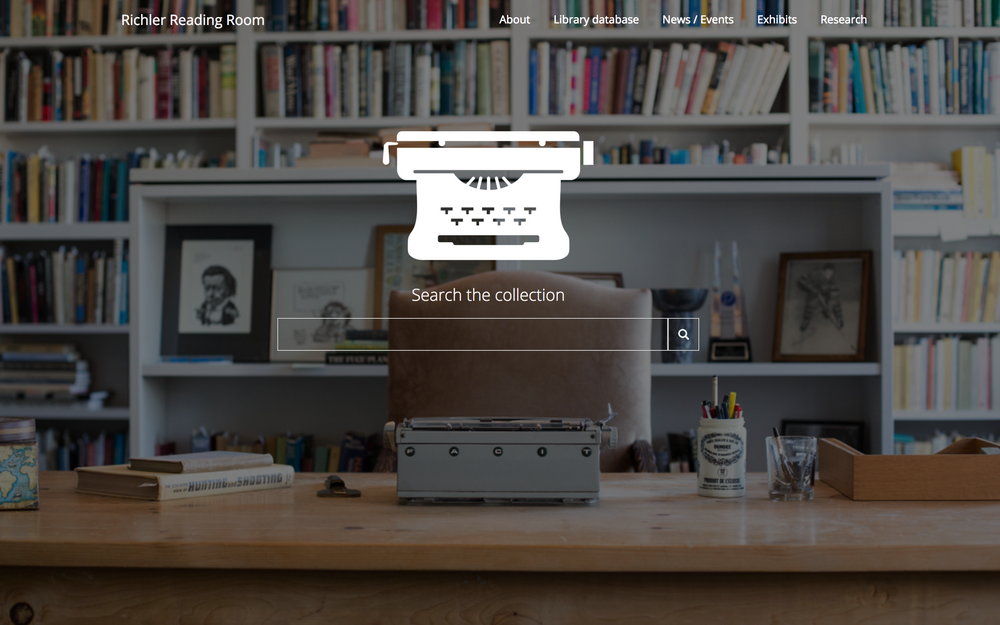News
Richler Search Engine - Initial Launch
Aug. 8, 2017

The present Richler Reading Room search engine is based upon categories used during the initial inventory of the Richler Library Collection, which was developed using EndNote for the books, and XL for all non book items. Much of the book data was captured by scanning barcodes or else typing in ISBNs resulting in downloaded OCLC data from the WorldCat Library Catalog. An additional field called “Research Notes” was added to the book database in order to record particulars about Richler’s interactions with books from his library, such as marginalia and inscriptions. The non-book item XL spreadsheets were organized according to fields used according to General Rules for Archival Description, such as Material Type, Item Category, Broad Notation, Specific Notation, etc.
Data from the EndNote database was exported as Annotated XML. Then, in Wordpress, a Custom Post Type called “Books” was created, and Custom Fields were created based on the EndNote column titles. Data from the XL file was exported as CSV. A second Custom Post Type called “Items” was created in Wordpress for this non-book item data. Both sets of data were uploaded to Wordpress using a plug-in called All Import, into the appropriate Custom Fields within the Custom Post Types (“Books” for the EndNote Data and “Items” for the XL data).
The data is searchable using the Relevanssi Wordpress plug-in. A search index was created using the data in the following fields:
For Books: Format, Title, Author, Publisher, Year
For Non-book Items: File or Item Title, Statement of Responsibility (i.e. creator, writer, etc.), Source Title Proper, Level of Description, Inclusive Dates, Material Type(s), Physical Description, Scope and Content Note
The results are presently sortable by Relevance, Date (Year), and Box number.
The Box number refers to the 2 cubic foot box in which the book or item was originally packed when the Richler family moved the contents of Mordecai Richler’s library into storage. While the box numbers do not represent a perfect record of the library contents’ original order as it existed in Mordecai Richler’s working library, some sense of the original organization of materials may possibly be gleaned, if not reconstructed, based on the box number.
This is the first iteration of the Richler Library search engine. Refinements allowing for advanced forms of searches within the contents of the library will be developed in the coming years.